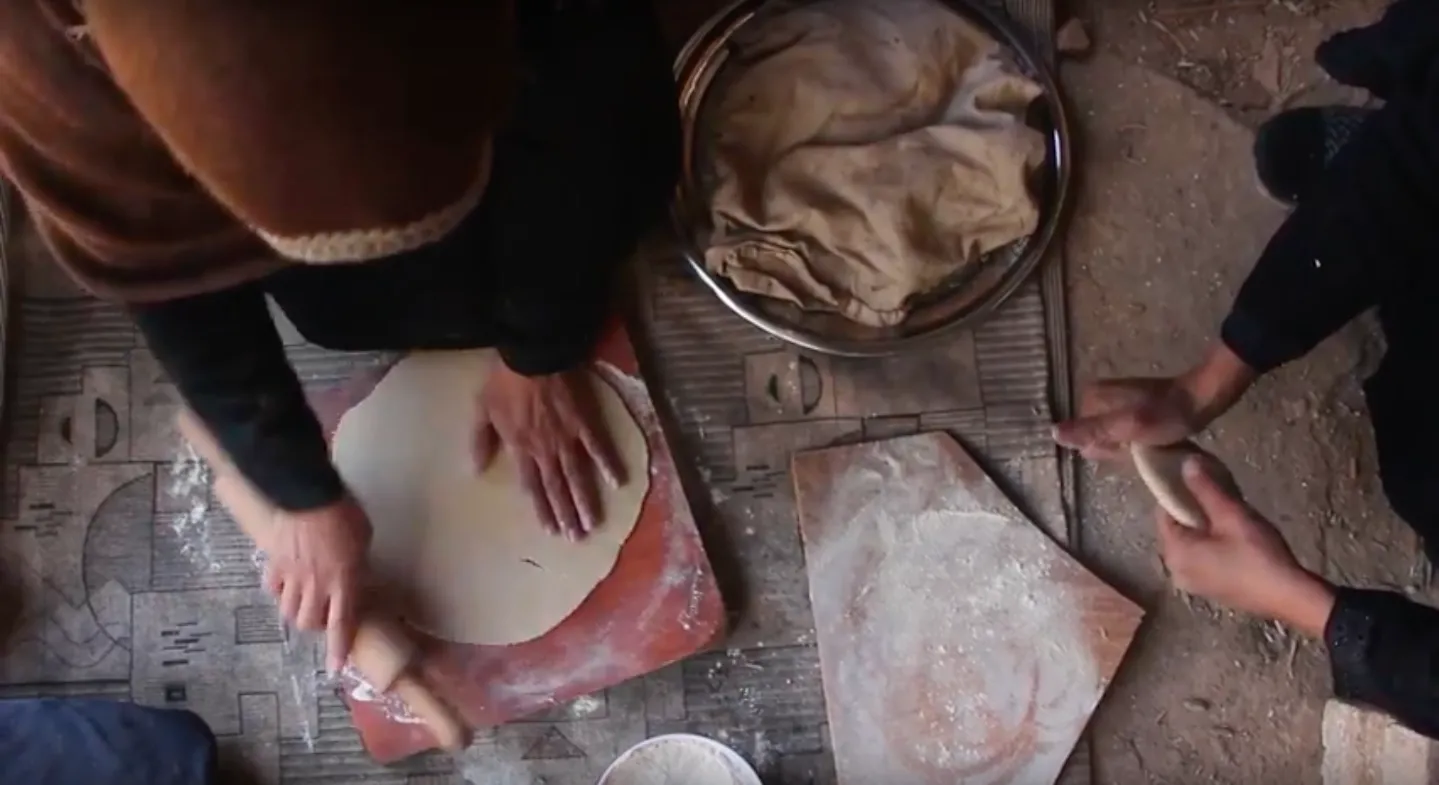“My husband used to work on cars, and he provided us with what we needed. But then he fell ill and became bedridden, and he could no longer work. So my son began working in the alleys of Ghouta and he was able to provide for us. But then a grenade destroyed his thin legs. My husband was unable to move, and my son was badly injured so I was left with no one to provide for me or my children.
“Little by little, my son’s condition began to decline. There was not a piece of bread in the house. There was not even a single olive. I couldn’t go out to work because it would mean leaving my children alone with my husband with his situation. And so, I accepted my son’s injury, my husband’s illness, and my own exhaustion for what they were, and decided that I would not watch them die. I sat in that room in front of the fireplace, miserable, staring at a pile of sticks. What can I make out of a pile of sticks? I thought long and hard. And in a moment of inspiration, I realized that I could turn my misery into life. I would gather up that brittle pile of sticks to bake bread, bread filled with life and colored with hope. With that pile of sticks, I set my misery on fire and reignited the flame of life.
“I began baking bread, and eventually I baked so much that I became famous throughout my entire region. It got to the point where people were racing to get to my house so that I might bake them bread, bringing their flour with them, the varying qualities of which reflected the range of their personal wealth, from poor to poorer. Among those who brought me their flour were people with wheat flour worth as much as 3,000 Syrian Liras a kilogram. These were people who had been blessed with prosperity. It was the case not long ago that the only people who ate wheat were poor. If the wealthy are eating wheat now, what do poor people eat?
With that pile of sticks, I set my misery on fire and reignited the flame of life.
“Among the people who bring me their flour are also those with barley — costing 1,500 Liras a kilo — which has been mixed with seeds of yellow corn — costing 1,000 Liras a kilo — and some grains of wheat. By mixing these together they are able to get bread of a medium quality. These are members of the middle class. There are also those who bring barley, but they do not come often. Finally, there are those who bake with feed, which costs 800 Liras a kilogram. They hardly ever seek out my services, because they do not have enough money to pay me, even though my price is low when you consider the overall increase in prices. They prefer, instead, to bake their bread at home, and thus avoid paying the 300 Liras I charge for each kilo of flour. They bake their bread themselves even though they don’t have any wood for the fire. This means that they are left to go out to the garbage containers and collect plastic bags or gather leaves by the side of the road, so that they can bake their feed bread. Yes, in Ghouta human beings are turned into animals. But they preserve their dignity.
“It’s true, those who bake with feed are poor, but even they appear rich when you compare them with some of the others. At least they are able to afford the price of feed. Many of Ghouta’s inhabitants can’t even afford feed or other animal food to eat. They are left with no other option than to pick the shrubs that grow by the side of the road.
“What’s more humiliating than that? Very seldom they buy cabbage and spinach at the market, which they cook with water only, and eat without bread. They do this with money they have borrowed from family members, and it amounts to nothing more than a small meal, barely enough to survive, which they eat, at most, once a day.
“Only the luckiest of the people of Ghouta were able to prepare themselves for the siege. They grew wheat and barley, which they stored in years past, and which they now use to bake bread, while this crippling siege continues.

